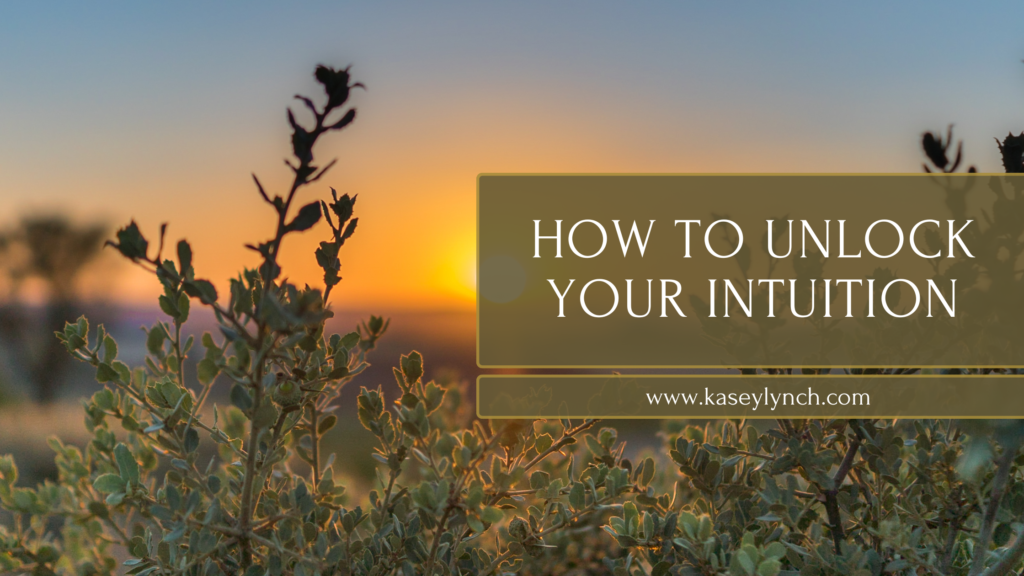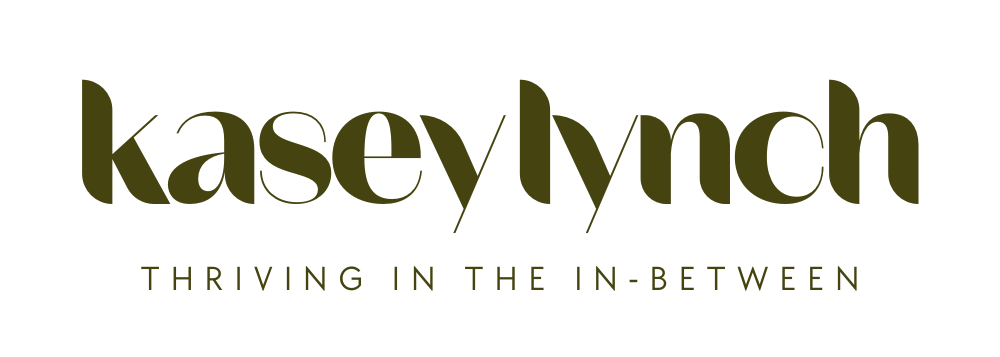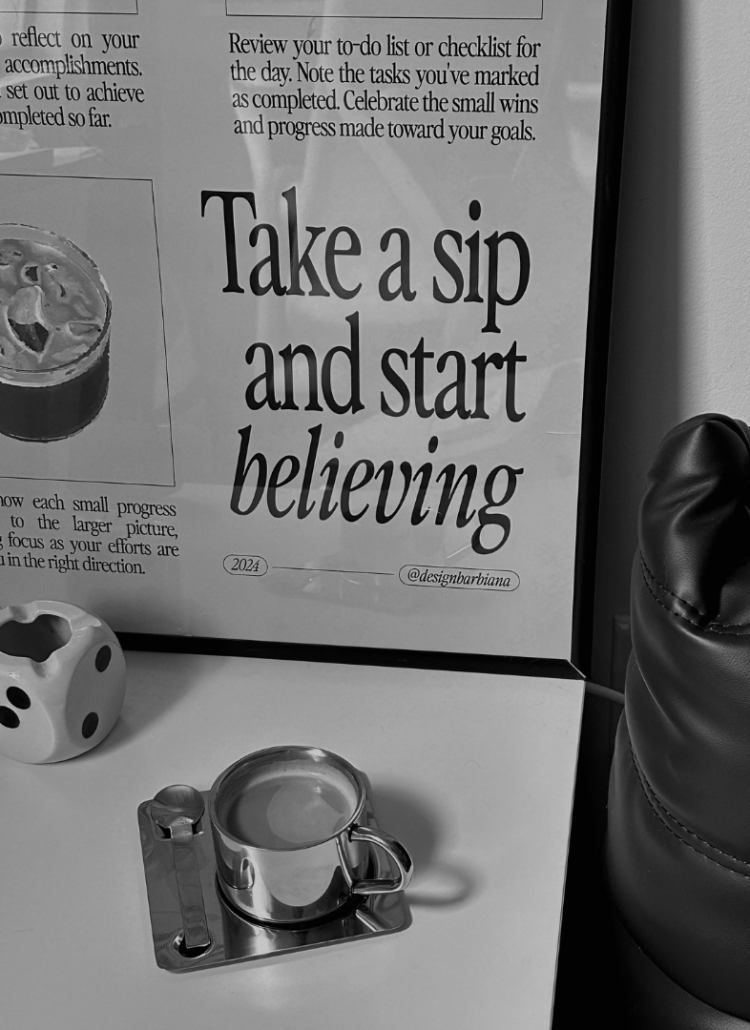
Have you ever had a strong feeling about something — whether it was a person, a decision, or a situation — only to second-guess yourself and later realize your initial instinct was right? That’s your gut instinct at work.
Intuition is a powerful, built-in guidance system that helps us navigate life, yet many of us have been conditioned to ignore it in favor of logic or external validation. The good news? You can retrain yourself to listen, trust, and strengthen this natural ability.
In this guide, we’ll explore practical exercises designed to help you reconnect with your intuition. Whether it’s through mindful decision-making, body awareness, or journaling, these steps will help you recognize what your intuition feels like, where it’s leading you, and how to trust it with confidence.
Let’s dive in and start tuning in to your inner wisdom.
Understanding Your Gut Instinct: The Science and Everyday Impact of Intuition
Ever had a feeling in your gut that something just wasn’t right, even when everything seemed fine on the surface? Or maybe you’ve made a split-second decision that turned out to be exactly what you needed? That’s your intuition at work. Often referred to as a “gut instinct,” this innate sense of knowing is more than just a hunch — it’s your subconscious mind processing information faster than your conscious brain can keep up.
The Science Behind Gut Instincts
Your gut feeling isn’t just a mystical force — it’s backed by science. The human body has a complex neural network called the enteric nervous system (ENS), often referred to as the “second brain.” This system, made up of over 100 million nerve cells lining your digestive tract, communicates directly with your brain via the vagus nerve. Research has shown that the gut produces about 95% of the body’s serotonin, a neurotransmitter that plays a crucial role in mood regulation and decision-making.
Neuroscientists also suggest that intuition is the result of the brain recognizing patterns based on past experiences and stored knowledge. The amygdala, a key part of the brain involved in emotional processing, plays a significant role in generating gut feelings by quickly assessing potential threats and opportunities before you consciously register them. Studies have found that experienced professionals in various fields — like firefighters and stock traders — often make rapid, intuitive decisions based on subtle cues that their brain has subconsciously processed.
“Intuition is a very powerful thing, more powerful than intellect, in my opinion.” – Steve Jobs
Signs You May Be Ignoring or Suppressing Your Gut Feelings
Even though our intuition is a powerful tool, many of us are conditioned to override it with logic, societal expectations, our ego, or fear. Here are some common signs that you may be ignoring or suppressing your gut instincts:
- You frequently second-guess yourself. If you constantly seek validation from others before making decisions, you may be dismissing your inner wisdom.
- You feel drained or anxious after making certain choices. Ignoring your gut can lead to decisions that don’t align with your true needs, causing stress or burnout.
- You experience physical discomfort. Tension in the stomach, headaches, or tightness in the chest can be signs that your body is signaling something important.
- You’ve regretted not listening to your initial reaction. Have you ever ignored a first impression or inner warning, only to later wish you had trusted yourself? That’s a clear sign your intuition was trying to guide you.
- You rely too much on logic or pros/cons lists. While analytical thinking is important, some decisions require a deeper, instinctual knowing that logic alone can’t provide.
Where Gut Instincts Matter Most
Your gut feelings come into play in almost every aspect of life, but they are especially critical in situations where logic alone doesn’t provide a clear answer.
✔️ Relationships: Whether it’s sensing red flags in a new friendship or feeling drawn to a particular person, gut instincts often signal emotional truths before your mind catches up. Studies even suggest that our bodies react to trustworthiness in faces within milliseconds.
✔️ Career Decisions: Ever had a “this isn’t the right job for me” feeling before even walking into an interview? That’s your subconscious processing environmental and social cues. Research shows that intuition plays a key role in expert decision-making across various industries.
✔️ Travel & Adventure: Intuition is crucial when exploring new places. Whether it’s sensing when a situation feels unsafe or deciding to take a spontaneous detour, trusting your gut can lead to both safety and unexpected joy. Many solo travelers report that their strongest decisions often come from a deep inner knowing. I can personally attest to this one. When your spidey senses tingle and you’re traveling alone, it’s paramount that you listen to what your body is telling you.
Gut instincts aren’t just random feelings — they’re a highly evolved system designed to guide YOU. The more you tune in, the better you’ll become at recognizing when to trust your intuition and when to combine it with logic for even smarter decision-making. Once you become comfortable letting your intuition lead the way, your life begins to flow — allowing you to move from moment to moment and experience to experience with everything you need without internal conflict.
Let’s dive into practical exercises that will help you strengthen and trust your gut instincts. 🔮✨
Unlocking Your Intuition: A Step-by-Step Approach
Developing a strong connection with your intuition doesn’t happen overnight—it’s a practice that unfolds over time. In my experience, there’s a natural progression to strengthening intuitive awareness, beginning with simple habits that reconnect you to your body and surroundings, then building up to more advanced exercises that help you interpret and trust your gut feelings.
If you’re ready to deepen your intuitive connection, start with these foundational steps and work your way through.
1. Spending Time in Nature
One of the easiest and most effective ways to reset your mind and strengthen your intuition is by immersing yourself in nature. The natural world has a way of silencing mental noise, helping you hear your inner voice more clearly.
- How Nature Supports Intuition: Studies show that spending time outdoors, particularly in green spaces, reduces stress, lowers cortisol levels, and improves cognitive function. When your mind is calm, it’s much easier to pick up on subtle intuitive signals.
- Walking Meditation & Grounding Exercises: Try a walking meditation by focusing on your breath and the sensation of your feet connecting with the earth. Walking barefoot on grass or sand (also known as “earthing”) has been shown to reduce inflammation and enhance emotional stability, which can further strengthen your intuitive awareness.
2. Practicing Small Intuitive Decisions Daily
Like any skill, intuition gets stronger with practice. The best way to build confidence in your gut instincts is by testing them out in low-pressure situations.
- Strengthen Intuition with Small Choices: Start with everyday decisions, like picking a meal without overthinking or choosing a different route home based on instinct rather than logic.
- Trusting Spontaneous Decisions: Instead of second-guessing, observe how your body reacts when you make quick, intuitive choices. Does your chest feel open and light? That’s often a sign you’re on the right track.
- When Logic & Intuition Work Together: Not all decisions should be purely intuitive — sometimes, logic provides important context. The key is recognizing when to trust your gut as a guide and when to pair it with reasoning for a well-rounded decision.
One of my favorite ways to strengthen my trust in intuition is through a simple driving exercise. When heading to the store, I have two possible routes. Instead of deciding logically, I ask myself which direction to take and listen to the very first answer that comes to mind. Since this is a low-stakes decision, it’s an easy way to practice daily. Over time, I’ve noticed that my intuition often guides me to the best route for that day — helping me avoid traffic or unexpected delays.
Real-Life Example: While grocery shopping at Walmart, I went to restock my usual Kodiak Chocolate Chip Frozen Waffles. But as I reached for them, a gut feeling nudged me to buy the blueberry ones instead. I had never tried them before, but instead of second-guessing, I went with my intuition. A few days later, a friend sent me a recall notice for frozen waffles. And guess which ones were on the list? The chocolate chip Kodiak waffles.
3. Body Awareness & Sensory Check-ins
Your body is constantly sending you signals (whether you listen to them or not) — learning to interpret them is a major step in unlocking your intuition.
- Tuning Into Physical Sensations: Pay attention to where emotions show up in your body. Does a certain situation make your stomach tighten? That could be a sign of unease. Do you feel a sense of warmth and relaxation? That’s often a green light from your intuition.
- Gut Feelings vs. Fear-Based Reactions: Fear tends to feel sharp, anxious, and urgent, while true intuition is often calmer, quieter, and more persistent. If you’re unsure, take a deep breath and notice if the sensation shifts.
- The “Yes/No” Body Sway Test: Stand still with your feet hip-width apart. Ask yourself a yes/no question and notice how your body reacts — many people naturally sway forward for “yes” and backward for “no.” This simple test can be surprisingly accurate in confirming intuitive nudges.
- The Weight Test: Sit comfortably with your hands resting palm-up on your knees. Start by focusing on your left hand and visualize one of your options in detail—consider its impact, pros and cons, and anything else that comes to mind. Pay attention to how your hand feels. Does it feel heavy, tingly, light, or neutral? Next, shift your focus to your right hand and do the same with your second option. Compare the sensations. If one hand feels noticeably heavier, that option may carry more resistance. If one feels lighter, it could be the better choice. If both feel neutral, you may need more information before deciding.
4. Journaling & Reflective Writing
Writing is a powerful way to access your subconscious mind and strengthen your intuition.
- Stream-of-Consciousness Journaling: Try free-writing for five minutes without stopping. Don’t censor yourself — just let your thoughts flow. Often, intuitive insights will surface in unexpected ways. If you’re interested in a more structured approach, consider reading The Artist’s Way by Julia Cameron. This book outlines a daily journaling practice, among other things, to help you tap into your creativity.
- Keeping an Intuition Log: Start tracking moments when you get strong gut feelings and compare them to the outcomes. Over time, you’ll see patterns emerge, reinforcing trust in your instincts.
- Dream Journaling: Your subconscious often communicates through dreams. Writing them down upon waking can help you recognize recurring symbols and messages. You can also use an AI program, like Astra, to help interpret your dream notes to identify areas of significance.
5. Mindfulness & Meditation Practices
A quiet mind is key to hearing intuitive guidance. Mindfulness and meditation train your brain to recognize intuitive signals more clearly.
- Deep Breathing Techniques: Breathwork activates the parasympathetic nervous system, calming your mind and allowing intuition to come through. Try box breathing (inhale 4 seconds, hold 4 seconds, exhale 4 seconds, hold 4 seconds) to center yourself.
- Guided Visualizations: Imagine yourself in different scenarios and notice how your body reacts. Visualization strengthens your ability to recognize and trust intuitive feelings in real-time situations.
- Daily Mindfulness Habits: Small moments of mindfulness — like savoring a meal, fully listening to someone speak, or focusing on the sensation of warm water while showering — help train your awareness to pick up on subtle intuitive cues.
6. Visualization & Energy Alignment
Once you’ve built a solid foundation, you can deepen your intuition with more advanced techniques like energy work and visualization.
- Imagining Different Outcomes: If you’re facing a decision, visualize each potential choice and pay attention to how your body reacts. Does one path feel expansive and exciting while the other feels heavy or constricting?
- Chakra Alignment for Intuition: The third eye chakra (located between your eyebrows) is associated with intuition. Practices like meditation, sound healing, and even using essential oils like frankincense or lavender can help balance this energy center, making intuitive messages clearer.
- Tuning Into Energy Shifts: Sometimes, intuition comes in the form of subtle energetic shifts. Have you ever walked into a room and immediately sensed tension without anyone saying a word? That’s your intuition picking up on non-verbal energy cues. The more you practice, the better you’ll become at recognizing these signals.
Overcoming Doubt and Strengthening Self-Trust
Trusting your intuition isn’t always easy — especially when doubt, fear, or external influences cloud your judgment. Sometimes, it requires a trust fall into the universe, surrendering to what you’re feeling without concrete evidence or logical proof to support that decision. Learning to differentiate between true gut instincts and fear-based reactions is key to strengthening your self-trust. Here’s how to sharpen your awareness and build confidence in your intuitive decisions.
Gut Instinct vs. Fear: How to Tell the Difference
It’s natural to question whether a strong feeling is genuine intuition or just anxiety talking. The key difference lies in how the message feels in your body:
Intuition is calm and clear. It often feels like a quiet knowing, a gentle nudge, or a subtle pull in a certain direction. Even when the message is urgent, it doesn’t create panic—it’s more of a steady certainty.
Fear and anxiety are loud and chaotic. They tend to feel overwhelming, racing, or obsessive. Fear often comes with self-doubt, worst-case scenarios, or an urgency that feels stressful rather than clear.
A quick test: Imagine taking action based on your gut feeling. Does your body feel open, light, and expansive? That’s intuition. If you feel tight, restricted, or panicked, it may be fear.
Recognizing Societal Conditioning That Discourages Intuition
Many of us were taught to prioritize logic over instinct, leading us to suppress our inner knowing. Society often reinforces these patterns by:
- Encouraging rational decision-making over “gut feelings”
- Teaching us to seek external validation rather than trusting ourselves
- Associating intuition with unreliable emotions rather than seeing it as an internal guidance system
Breaking free from these influences starts with awareness. When you catch yourself dismissing a gut feeling, ask: Is this doubt truly mine, or is it conditioning from society, family, past experiences, or someone else in your environment?
Affirmations & Mindset Shifts to Build Self-Trust
Strengthening your intuition requires a shift in mindset. The more you affirm your ability to trust yourself, the stronger your intuitive connection will become.
Try repeating these affirmations:
✨ “I trust myself to make the right decisions.”
✨ “My intuition is strong, clear, and reliable.”
✨ “I am safe in trusting my inner wisdom.”
✨ “I don’t need outside validation — I already know what’s best for me.”
Additionally, practicing small intuitive decisions daily (like choosing a meal or picking a route without overthinking) helps reinforce self-trust in bigger moments. Over time, these small wins build the confidence needed to rely on intuition more deeply.
Related: Daily Affirmations for Self-Love: A Simple Shift That Changes Everything
Trusting Yourself Will Change Your Life
Doubt is normal, but it doesn’t have to control your decision-making. By learning to differentiate fear from intuition, recognizing the societal patterns that suppress inner wisdom, and actively reinforcing self-trust through affirmations and daily practice, you’ll create a strong, reliable relationship with your intuition.
The more you listen, the clearer your inner voice becomes. 💫





[…] Related: 6 Practical Exercises to Strengthen and Unlock Your Intuition […]